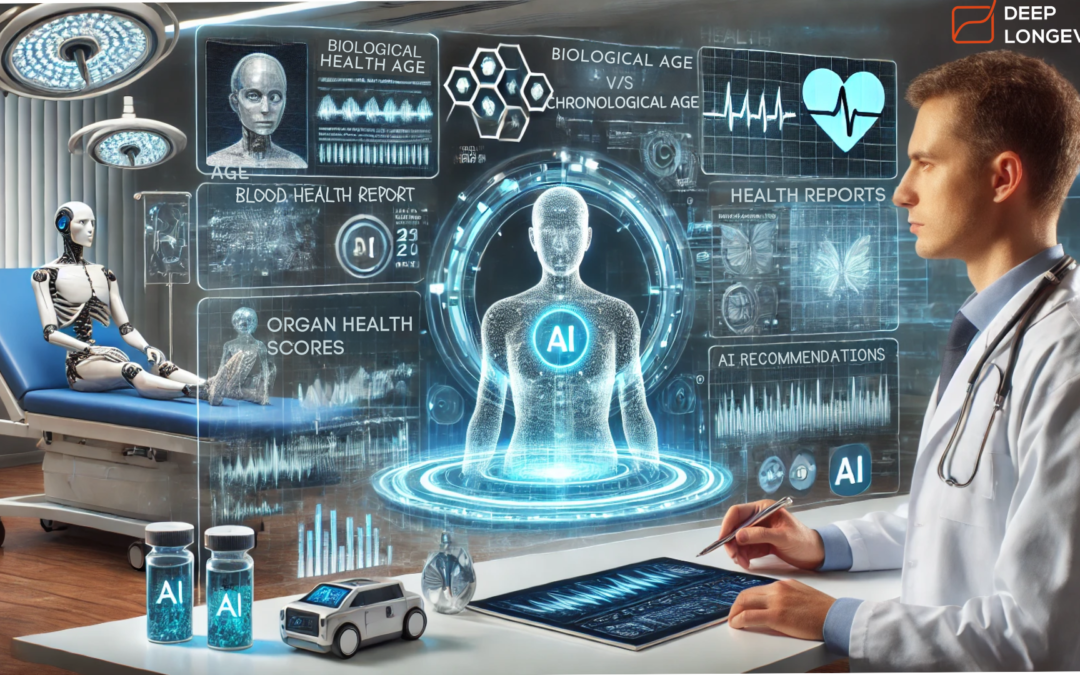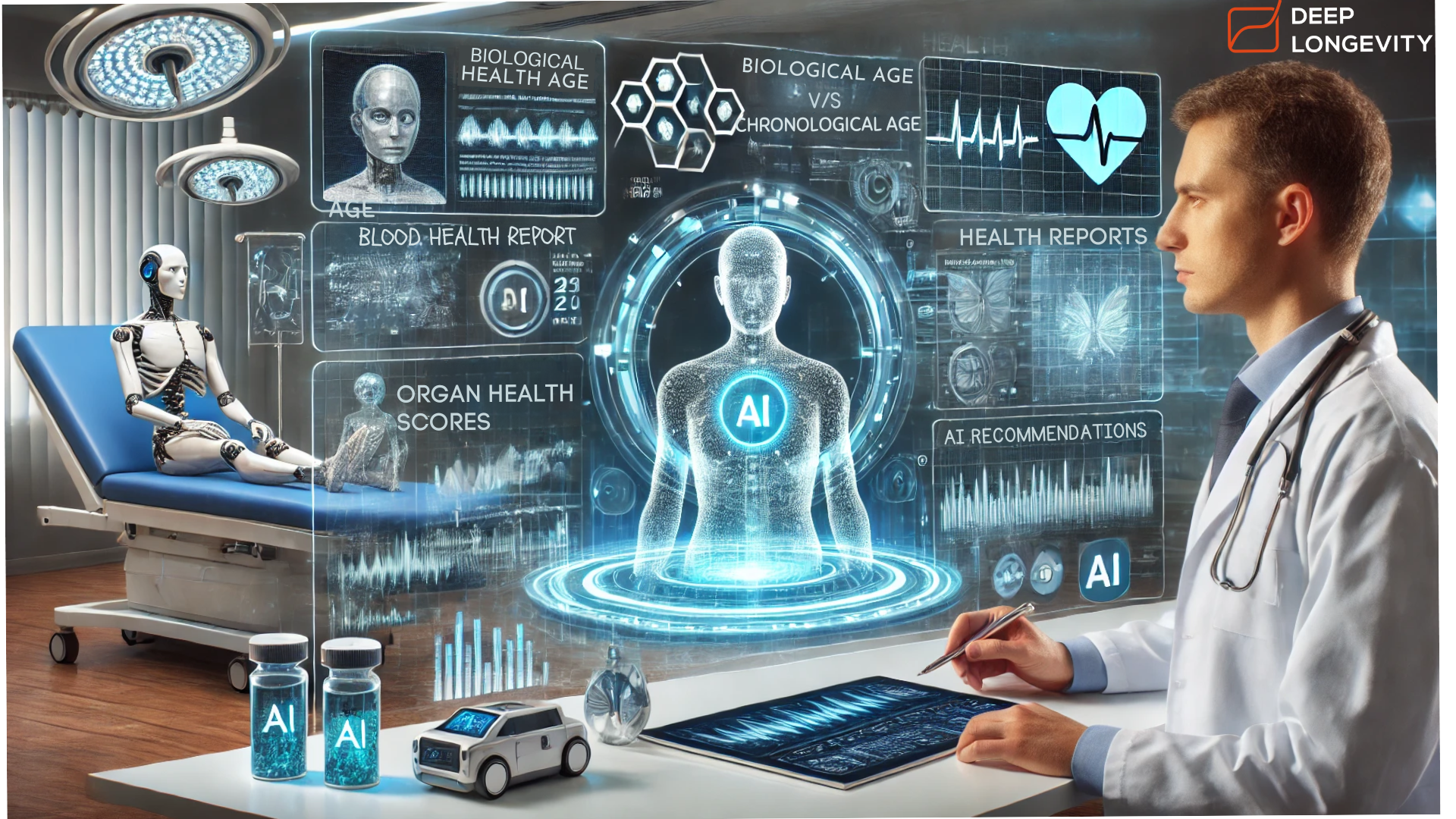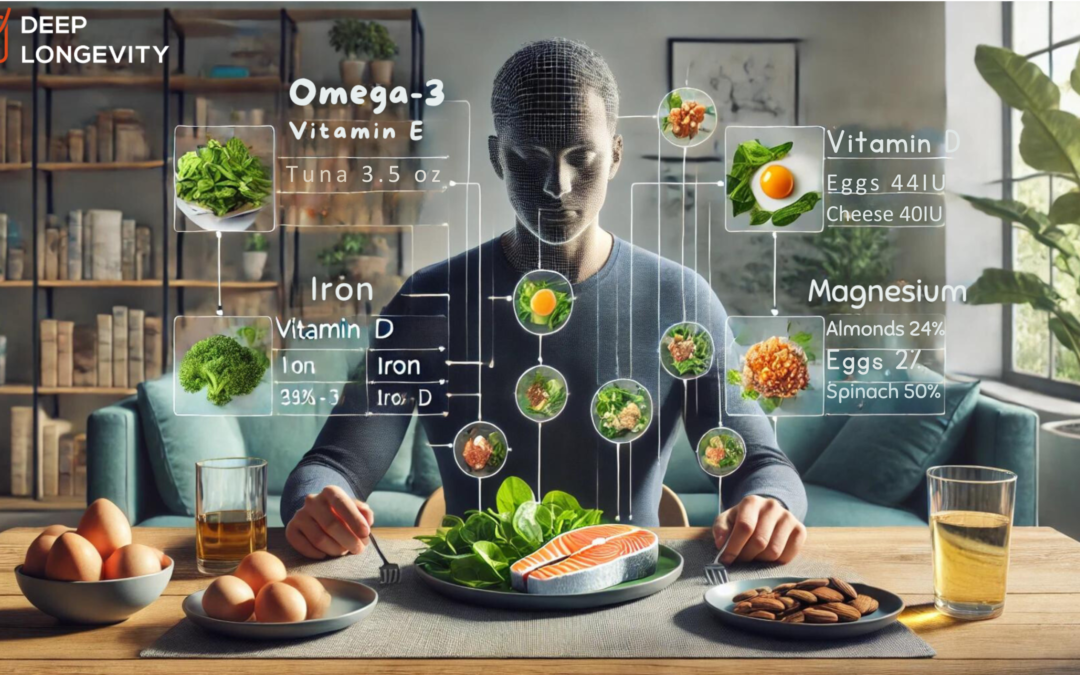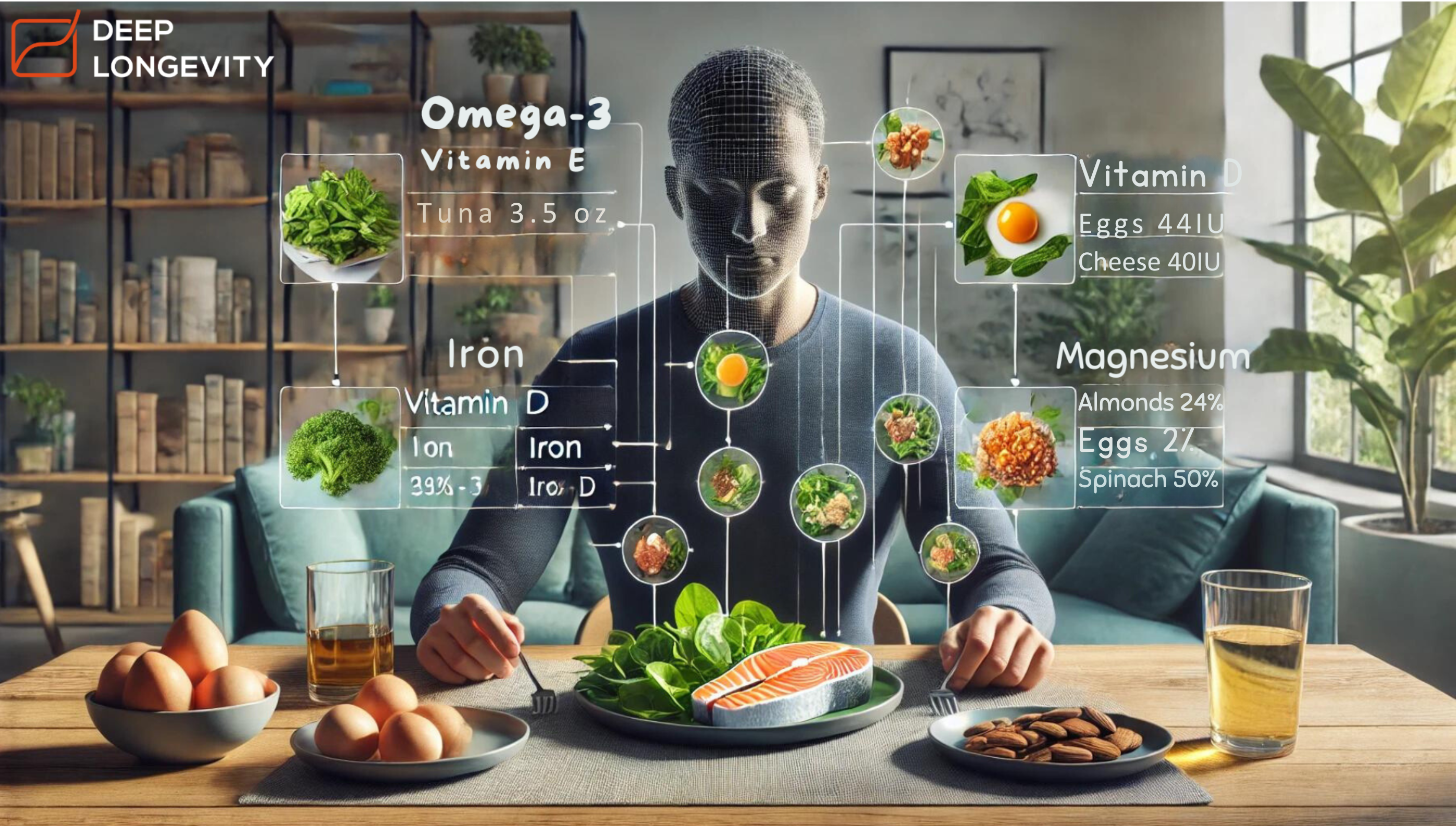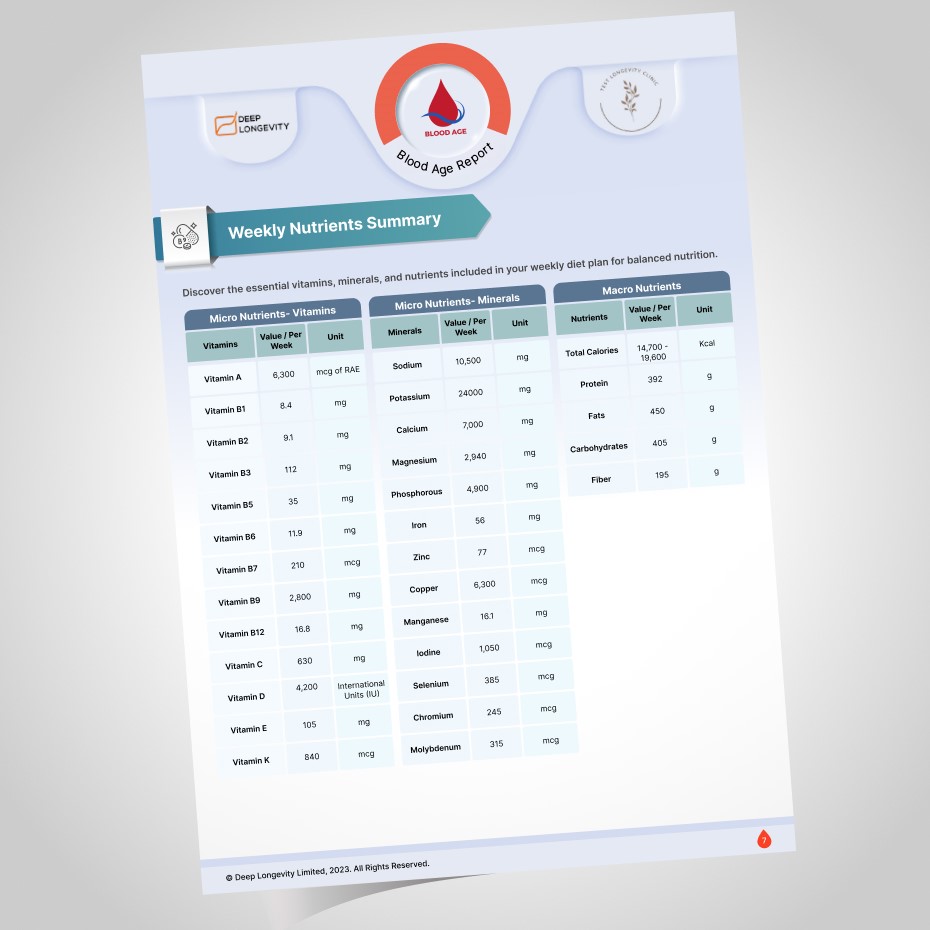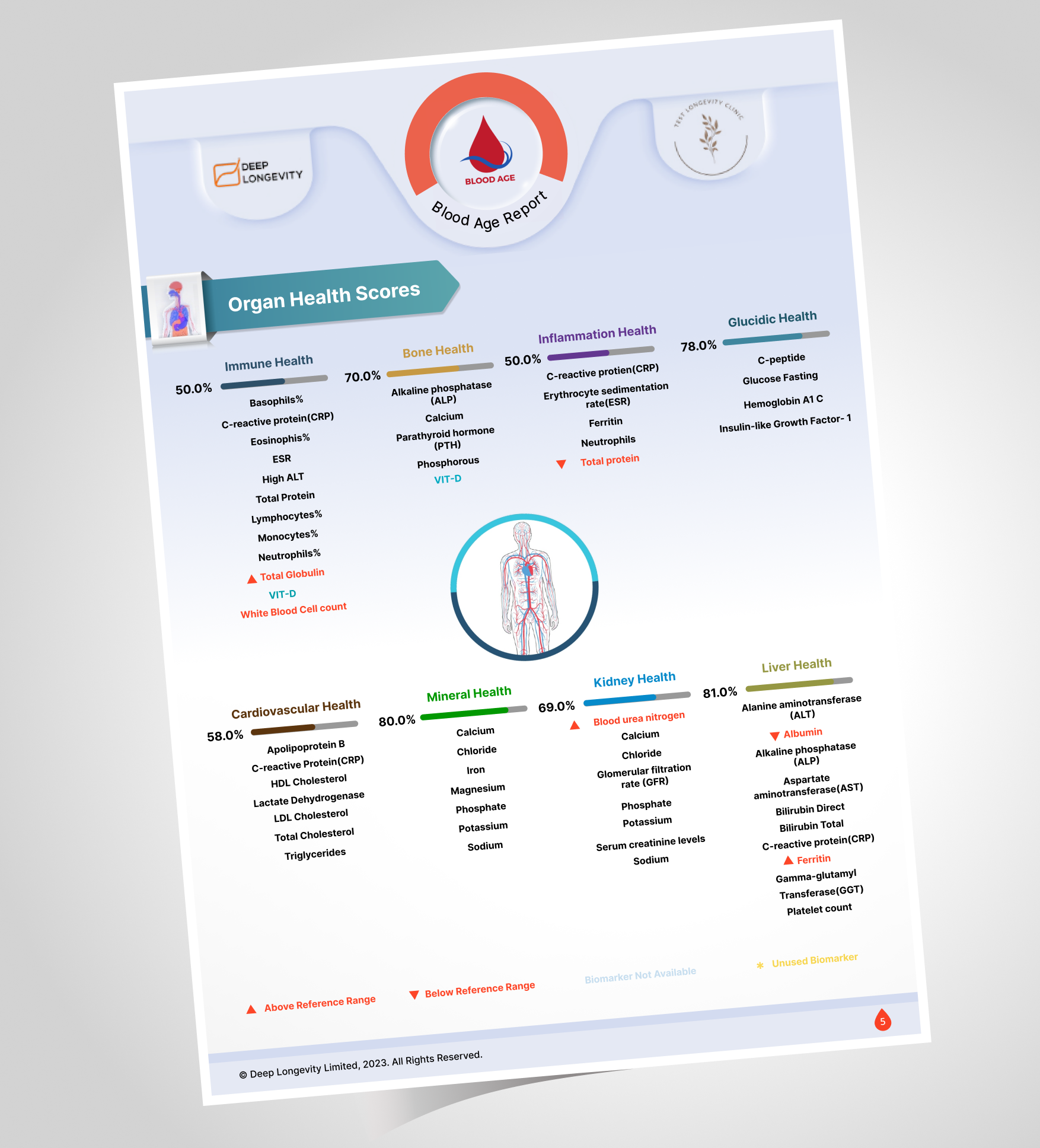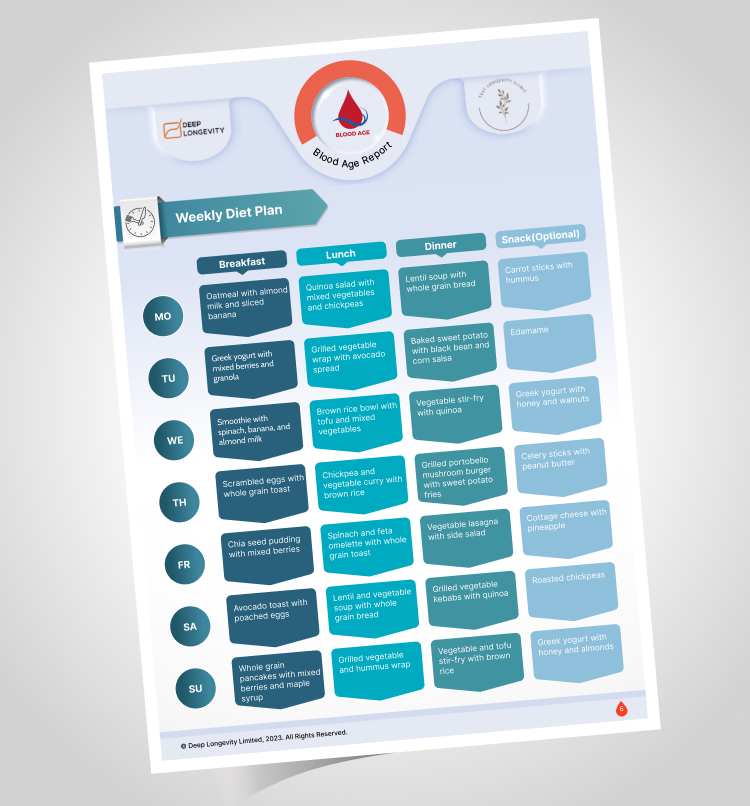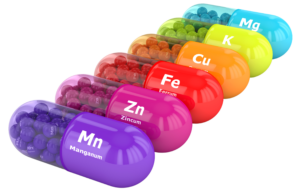
Healthier Teams, Healthier Organizations: Boosting Productivity with Blood Age and Mind Clocks – Point of View

Introduction
In the fast-paced corporate world, productivity fuels success and on open secret of organization productivity is team health. Team health is the true engine behind high-performing organizations. Healthier teams experience better synergy, smoother workflows, and more creative problem-solving.
However, maintaining team health amid constant demands can be challenging. Here’s where innovations like Blood Age and Mind Age clocks can make a difference. These advanced health-tracking tools provide real-time insights into employee wellness right at their desks, transforming individual health into a strategic advantage for organizations. This blog explores how these clocks can elevate organizational productivity and how prioritizing team health leads to tangible corporate success.
Why Team Health is the Bedrock of Organizational Success
Imagine a company where communication flows seamlessly, decisions are timely and effective, and collaboration leads to consistent innovation. Such outcomes aren’t accidental—they’re rooted in team health. Research shows that healthier teams are more productive, cohesive, and adaptive.[1] Yet, achieving this ideal requires constant attention to physical and mental well-being, which can be a significant challenge in busy workplaces.
Tracking key health metrics can bridge this gap, creating a supportive environment for individuals and teams. Blood Age and Mind Age clocks allow organizations to monitor critical indicators like wellbeing scores and biological age, turning everyday health insights into proactive wellness strategies that keep productivity high.
The Science Behind Health Tracking for Productivity
Research from leading institutions confirms a strong connection between individual health and workplace performance. Health factors such as psychological wellbeing, being a slow ager, influence cognitive function, mood, energy levels, and focus, all essential for team productivity. Blood Age and Mind Age clocks offer real-time tracking of blood parameters, enabling individuals and organizations to make data-driven adjustments for optimal performance.
Key Health Indicators to Track
- Blood Age: A biological age estimate that shows whether an individual’s body is aging faster or slower than their chronological age.
- Biomarker Impact: Various blood biomarkers impact Blood Age, offering insight into factors that either speed up or slow down aging.
- Organ Health Scores: Scores for organ systems such as cardiovascular, immune, bone, liver health etc. help employees identify areas needing improvement.
- Wellbeing Score: Indicates level of motivation, energy, ability to work in teams
By keeping an eye on these metrics, employees can make small adjustments—like taking a walk or practicing mindfulness exercises—that enhance their day-to-day performance. These personalized insights empower both individuals and organizations to foster a health-conscious culture.
Leveraging Blood Age and Mind Age Clocks in Corporate Spaces
Enhancing Productivity through Health Management
Research shows that health and productivity are deeply interconnected. Harvard Business School[2] and Stanford researchers have identified that health-driven workplace environments, where stress is minimized and well-being is prioritized, result in more productive and satisfied employees. For instance, Harvard researchers highlight how high-stress conditions, such as long hours and job insecurity, contribute significantly to poor health outcomes and higher healthcare costs. Reducing these stressors, or supporting employees in managing them, can lead to substantial organizational benefits, including lower turnover, enhanced job satisfaction, and ultimately, higher productivity.
Psychological Safety and Employee Creativity
A psychologically enhanced work environment is critical for innovation and teamwork, as found in Harvard’s Work Design[3] for Health framework. Employees who feel secure and valued are more likely to contribute creatively, share ideas openly, and engage in problem-solving. The integration of wellness tracking tools, like Blood Age and Mind Age clocks, can play a crucial role here by providing individuals with insights into their physical and mental well-being. By proactively managing their health, employees build resilience and are more prepared to engage collaboratively, driving the organization toward innovative solutions[4].
The Long-Term ROI of Health Investments
Stanford research suggests that supporting employee health can yield considerable economic benefits for organizations by reducing costs associated with healthcare and absenteeism. Jeffrey Pfeffer from Stanford, points out that stress in the workplace has become a “hidden” cost factor, contributing to billions in healthcare expenses and thousands of deaths annually. Reducing these hidden costs, therefore, is in the financial interest of organizations. By offering tools that enable employees to monitor and manage their health, companies create a proactive health culture that can improve retention, morale, and financial performance over the long term.[5]
Bridging Wellness and Strategic Goals with Data-Driven Health Tools
Harvard’s “Work Design for Health”[6] framework supports a shift from traditional wellness programs toward a work environment that addresses the root causes of employee stress. The Blood Age and Mind Age clocks can serve as essential tools in this approach, allowing employees to understand how their daily routines impact their health. With real-time insights, they can adopt more health-conscious behaviours that prevent illness, burnout, and absenteeism.[7] This data-driven approach not only aligns with personal wellness goals but also with the strategic objectives of high-performing organizations that prioritize resilience and continuous improvement.
The Productivity Drivers Enhanced by Health Clocks
Improved Collaboration and Communication
Healthier employees communicate more effectively, reducing misunderstandings and strengthening team bonds. Physical and mental wellness fosters energy and engagement in collaborative projects.
Organizational Impact: Stronger collaboration leads to cohesive teams, quick problem-solving, and innovation, driving growth.
Psychological Safety and Mental Health
A safe space for sharing ideas and taking risks is vital. Mental well-being boosts resilience and fosters creative contributions without fear.
Organizational Impact: Psychological safety enhances creativity, adaptability, and innovation in a fast-changing world.
Better Decision-Making and Focus
Healthier employees with reduced stress and better focus make sharper decisions. Balanced minds ensure swift, informed actions.
Organizational Impact: Improved decision-making supports smarter strategies, optimal resource use, and risk reduction for long-term success.
Boosting Innovation and Creativity
Wellness fuels creativity and cognitive sharpness. Regular exercise, rest, and mental breaks unlock fresh ideas.
Organizational Impact: A health-driven innovative culture keeps organizations agile and ready for change.
Building Trust and Relationships
Healthier employees are more reliable, fostering trust across teams. A collective wellness commitment creates integrity and reliability.
Organizational Impact: Trust strengthens teams, reduces silos, and promotes collaboration for organizational growth.
Increasing Productivity and Reducing Absenteeism
A healthy workforce means fewer sick days and burnout. Regular wellness checks sustain focus and energy, minimizing absences.
Organizational Impact: Consistent productivity and lower costs provide a stable environment for competitive growth.
Fostering Alignment and Purpose
Healthy employees align personal and organizational goals, investing more in the company’s mission.
Organizational Impact: Shared purpose enhances teamwork, innovation, and productivity.
Creating a Culture of Continuous Improvement
Healthier individuals embrace feedback and growth, fostering a culture of learning and self-improvement.
Organizational Impact: A growth mindset ensures adaptability and competitiveness, driven by health-focused teams.
Corporate Benefits of Integrating Health Clocks
The benefits of investing in health-monitoring tools like Blood Age and Mind Age clocks extend beyond employee wellness—they’re strategic assets for organizational success:
- Increased Productivity: Healthier employees work more efficiently, increasing their impact.
- Reduced Absenteeism: With proactive health management, fewer employees take sick days.
- Enhanced Team Cohesion: When everyone prioritizes health, team dynamics improve, fostering collaboration and synergy.
Imagine a workplace where each team member starts the day equipped with a clear picture of their health, prepared to take on their tasks at peak performance. This vision is possible with the integration of health clocks, creating a powerful connection between wellness and productivity.
Conclusion: A Healthier Team, A Stronger Company
Investing in team health is more than a wellness initiative; it’s a productivity strategy. Blood Age and Mind Age clocks empower organizations to keep a real-time pulse on team wellness, transforming individual well-being into organizational strength. As employees grow healthier, organizations experience a cascade of benefits: enhanced efficiency, increased innovation, and a resilient workforce. In today’s data-driven corporate world, these clocks offer the essential bridge between wellness and sustained productivity. Healthier teams are not just an asset—they’re the foundation of thriving, successful companies.

